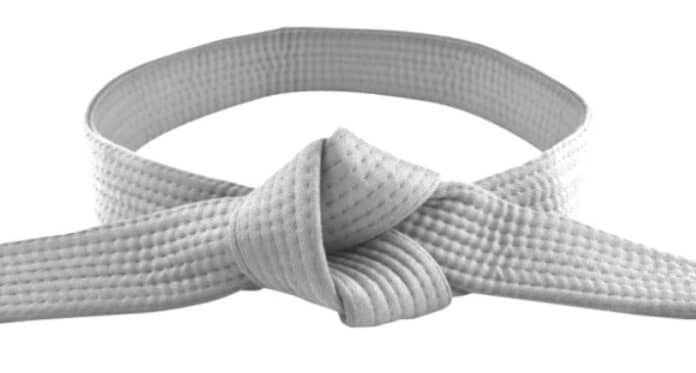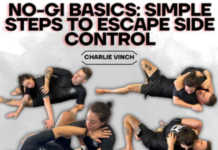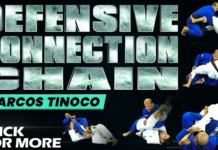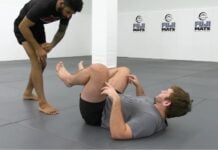
If you’ve been training Jiu-Jitsu for some time, you’ve probably noticed that many students who come to Jiu-Jitsu quickly quit. It makes people wonder why they even came if they give up after a short time without exploring the skill and never return.
The journey into Jiu-Jitsu starting with a white belt is very challenging for many, from many aspects, making it seem like an insurmountable mountain. New white belts can’t grasp that the Jiu-Jitsu journey is simple if you don’t try to master it instantly.
So why do people give up?
This is a question that many in BJJ ask every day, especially gym owners and coaches.
What particularly intrigues us is why some students who are very enthusiastic about training BJJ, in the beginning, quit long before reaching the blue belt.
Studying this phenomenon and talking to various professors, and students, and through various surveys, we have come to some conclusions that we think are the reasons.
Why do white belts quit?
If we ask how much time and training per week is needed for progress in Jiu-Jitsu, we can say that even one session a week is enough for progress. However, is one training session per week enough for progress compared to other students especially those who started training when you did? We can say that it isn’t.
Jiu-Jitsu requires a lot of time, and it’s not something everyone can keep up with. To maintain the will and desire to train, you need to invest at least 3 training sessions per week to progress enough for that progress to push you forward.
Here we have a vicious circle because if you spend much time somewhere where you don’t see progress, you lose interest in it. This problem happens to all white belts for whom everything in BJJ seems impossible to learn anyway. When we combine this with slow progress because some don’t have time for training, quitting training is the only logical sequence of events.
Furthermore, individuals starting BJJ have various goals. Some want to learn fighting skills, some want to learn self-defense, some want to raise their fitness level, and some want to socialize through sports. Considering the differences in the reasons for training, intensity varies from student to student, and therefore, some become discouraged by others and stop training.
Mental and Physical Barriers
Just knowing and understanding techniques in BJJ is one thing, but applying those techniques against sparring partners who resist using all their strength and knowledge is something completely different.
No matter how many times you practice a technique on a partner who doesn’t resist, you will never perform that same technique effortlessly on someone who resists.
The mechanics of each move differ greatly in sparring compared to drills, so each one requires going through sparring for our body to get used to and learn how to apply it in real situations. This is also why all self-defense skills don’t work in reality because they are only practiced and not applied in sparring and real situations.
Since BJJ is absolutely real in every aspect, and the training sessions themselves are based on real scenarios and fights, it often happens that white belts are discouraged by the “I don’t know anything” attitude and don’t give themselves time to learn how to apply things in real combat.
Wrong Environment
In many cases, the sense of camaraderie can significantly affect the decision whether to stay or leave BJJ. The approach to BJJ and especially sparring must be in the spirit of healthy competition. That’s precisely why BJJ is becoming an increasingly popular sport. Namely, absolutely everyone who understands how this sport works strives to maintain a positive sports spirit in the gyms.
This is one of the reasons why finding the right academy is very important. A place where everyone is geared towards victory, and submissions, and where they tally “victories” and “defeats” in sparring against each other is certainly not encouraging for white belts.
Wrong Mindset
Having a wrong mindset means we’ll face so many “problems” that aren’t problems but seem very large to white belts.
As a beginner in any sport, especially one with as many techniques and unknowns as Jiu-Jitsu, it is important for white belts to reconcile their lack of experience and unfamiliarity with techniques.
It is important not to let the fear of the unknown discourage you in your further training. As you know, every black belt was once a white belt. As we like to say in Jiu-Jitsu, every black belt is a white belt who never gave up.
What is important to accept is that BJJ is a sport that requires patience and perseverance no matter how slow progress may be sometimes.
What we know is that it is very important to set goals for ourselves and that we all have goals to achieve. Whether we reach our goals faster or slower doesn’t matter because every journey through Jiu-Jitsu is individual.
We all know that it is easiest to make excuses for not doing something and why something doesn’t work, however, the right approach is to seek solutions and ask as many questions as possible to your higher-ranked colleagues or coaches.
Setting Unrealistic Goals
One of the biggest reasons white belts quit BJJ is setting unrealistic goals. None of us experienced in the sport progressed overnight, so you won’t either. None of us were able to win every spar right from the start, so you won’t either.
This is the case in all sports, not just Jiu-Jitsu. In Jiu-Jitsu, you experience this “reality check” every training session, so it’s a little harder to take than in team sports where you can always blame someone else. And even in some other martial arts, it’s easier because you don’t have to spar every training session or attend sparring sessions. In BJJ, every training session involves sparring because no one will hurt you, and you can work at 100%, so there are no excuses for poor performance and “losing”. You simply have to accept reality and strive to be better, learning something from every subsequent training session.
Given all of the above, we conclude that it is most important to set realistic goals for yourself and accept reality as it is, real, as it is. It is very important not to compare ourselves to others because we don’t all have the same lives, the same time, the same affinities, or abilities.
Focus on mastering the basics, be consistent in training, and arm yourself with a lot of patience and practice, and the results will come sooner than you expect.











































